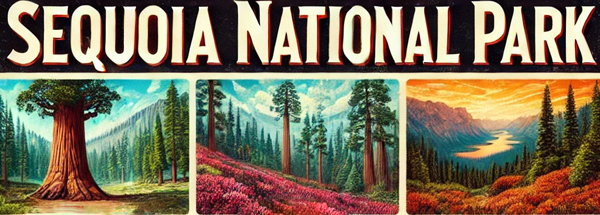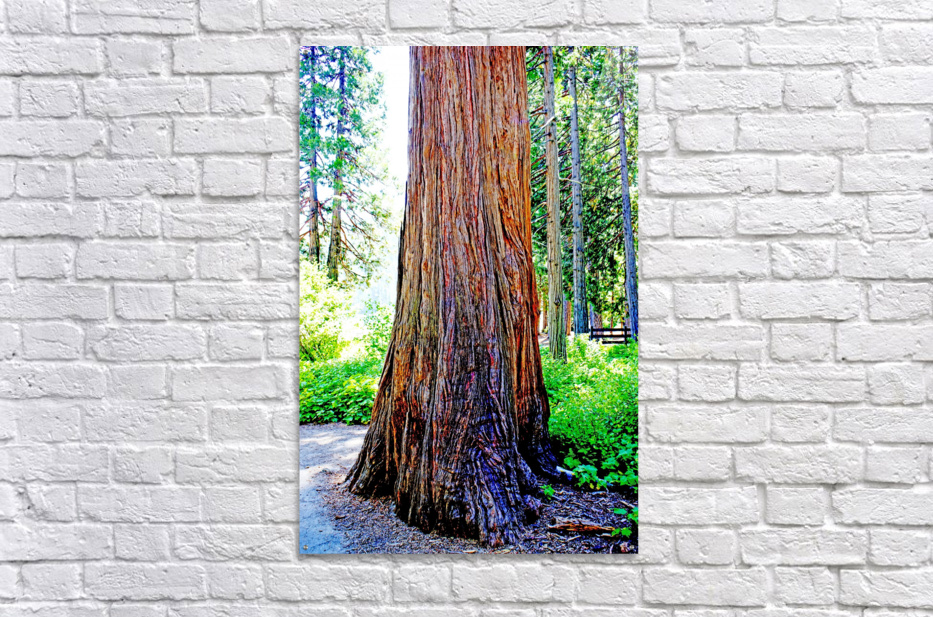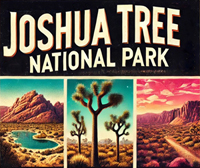
Join William at the crossroads of technology, business, and leadership, where true influence isn't about titles - it's about inspiring action, driving change, and guiding others with integrity. Discover how authentic leadership can transform not just careers, but entire industries.
Discover William Stanek's Exclusive Art Collection
Explore and purchase the stunning art featured on this site. Own a piece of William Stanek's unique and captivating artwork today!

The Majesty of Sequoia: William Stanek's Iconic Photographs
(May 2, 2025) Sequoia National Park, home to some of the largest trees on Earth, is a place of awe and inspiration. For William Stanek, a renowned photographer and artist, the park represents a natural cathedral, a place where the majesty of nature is on full display. This article delves into William's passion for photographing the massive trees and serene landscapes of Sequoia National Park, highlighting his techniques and his involvement in conservation efforts to protect these ancient giants.
The Allure of Sequoia National Park
William Stanek's connection to Sequoia National Park is deeply rooted in his admiration for the natural world and his appreciation for the unique beauty of these ancient forests. The towering sequoias, with their immense height and age, create a sense of wonder and reverence that William seeks to capture in his work.
The giant sequoias, some of which are over 300 feet tall and more than 3,000 years old, are a testament to the power and resilience of nature. William is captivated by their sheer size and the sense of timelessness they evoke. His photographs aim to convey the majesty of these ancient giants, capturing their grandeur and the serene beauty of the forest.
"Standing among the sequoias is a humbling experience," William explains. "These trees have witnessed millennia of history, and their presence commands respect and admiration. My goal is to capture that sense of awe and wonder in my photographs."
In addition to the towering sequoias, Sequoia National Park offers a diverse range of landscapes, from lush meadows to rugged mountains. William's photography highlights the beauty of these serene landscapes, showcasing the intricate details of the forest floor and the expansive vistas of the park.
"The landscapes of Sequoia National Park are incredibly diverse," William says. "From the towering trees to the delicate wildflowers, every element of the park contributes to its beauty. I strive to capture the full range of this environment, from the grand to the minute details."
Techniques for Capturing the Majesty of Sequoia
William's success in capturing the majesty of Sequoia National Park is due in large part to his meticulous techniques and deep understanding of the forest environment. His approach combines careful planning, an eye for detail, and a deep appreciation for the natural world.
Light plays a crucial role in William's photography, especially in the dense forests of the sequoias. The interplay of light and shadow creates a dynamic and ever-changing landscape. William often plans his shoots around the golden hours of sunrise and sunset when the light is soft and creates a magical glow in the forest.
"Light is everything in photography," William explains. "In Sequoia, the early morning and late afternoon light create a magical atmosphere, highlighting the textures and colors of the forest. Finding the right light is key to capturing the beauty of these trees."
William's compositions are carefully crafted to highlight the immense scale of the sequoias. He often uses wide-angle lenses to capture the full height of the trees and create a sense of depth in his images. He also experiments with different perspectives, from ground-level shots that emphasize the towering height of the trees to aerial views that showcase the vastness of the forest.
"Composition is about finding the right balance and perspective," William says. "In Sequoia, I look for ways to emphasize the scale and grandeur of the trees, creating images that are both visually striking and evocative."
In addition to capturing the grandeur of the sequoias, William also focuses on the intricate details of the forest. From the textures of the tree bark to the delicate wildflowers on the forest floor, his photographs highlight the richness and diversity of the environment.
"The beauty of the sequoias is in the details," William explains. "I strive to capture the textures, colors, and patterns that make this forest so unique. By focusing on the details, I hope to convey the full richness of this environment."
Conservation Efforts to Protect Sequoia National Park
William Stanek's work is not just about capturing the beauty of Sequoia--it is also about raising awareness of the importance of conserving these ancient giants. The sequoias are a crucial part of the ecosystem, providing habitat for a wide range of species and playing a vital role in carbon sequestration. Through his photography and advocacy, William hopes to inspire a greater appreciation for these trees and a commitment to their preservation.
William's photographs often include subtle elements that highlight the environmental challenges facing Sequoia National Park. Whether it's the impacts of climate change, the encroachment of development, or the pressures of tourism, these elements serve as a reminder of the need to protect these ancient ecosystems.
"Photography has the power to tell stories and raise awareness," William explains. "In Sequoia, I try to capture not just the beauty of the trees, but also the challenges they face. I want people to see the importance of preserving these ancient forests."
In addition to his photography, William was actively involved in advocacy and education efforts to protect Sequoia National Park. He has worked with conservation organizations to promote sustainable practices and raise awareness about the ecological significance of the sequoias.
"Education and advocacy are crucial for conservation," William says. "Through my work, I hope to inspire others to take action to protect the sequoias and other old-growth forests. It's about creating a sense of stewardship and responsibility for the environment."
William also believes in the power of community engagement to drive conservation efforts. He has participated in community events, workshops, and exhibitions, where he shared his experiences and insights with others. By fostering a connection between people and the natural world, he hopes to inspire a collective commitment to conservation.
"Community engagement is a powerful tool for conservation," William explains. "By connecting people with the beauty and importance of the sequoias, we can build a community of advocates who are passionate about protecting these ancient forests."
Wildfires: Impact and Future Concerns
Sequoia National Park has experienced severe fire impacts, especially during the 2021 fire season. Two major fires, the KNP Complex Fire and the Windy Fire, burned through numerous giant sequoia groves, causing extensive damage.
KNP Complex Fire: The KNP Complex Fire affected 16 sequoia groves, burning a total of 4,374 acres. The fire severity varied across the affected areas, with some regions experiencing high severity burns that led to significant tree mortality. This fire had a profound impact on the sequoia population, with many ancient trees succumbing to the intense heat and flames.
Windy Fire: The Windy Fire burned 1,735 acres across 11 sequoia groves. Similar to the KNP Complex Fire, it caused varying degrees of damage, with high severity burns resulting in substantial tree loss. The cumulative effect of these fires has severely stressed the sequoia ecosystem, making recovery and regeneration more challenging.
The 2021 fires were particularly devastating because they followed the 2020 Castle Fire, which had already caused significant losses to the sequoia population. The combined impact of these fires has raised concerns about the long-term survival and regeneration of giant sequoias. The loss of these ancient trees disrupts the ecological balance of the forest, affecting numerous plant and animal species that depend on the sequoias for habitat and food.
"The giant sequoias are among the most magnificent trees on Earth," William says, "but they are incredibly vulnerable to wildfires. It's heartbreaking to see the damage caused by recent fires. Through my photography, I hope to raise awareness and inspire action to protect these ancient forests."
The aftermath of wildfires also affects soil and water quality. The intense heat can alter soil composition, making it less fertile and more prone to erosion. Runoff from burned areas can carry ash and debris into streams and rivers, affecting water quality and aquatic life.
"Wildfires are a stark reminder of the fragility of our natural world," Hui Cha says. "We must work together to ensure the survival of these incredible trees. Each photograph is a call to action to preserve and protect Sequoia National Park for future generations." Wildfires also impact tourism, a vital component of the local economy. The threat of fires can deter visitors, and smoke and fire damage can lead to trail closures and restricted access to certain areas. This not only affects visitor experience but also reduces the funds available for park maintenance and conservation efforts.
Future Concerns and Conservation Efforts
Warmer temperatures and prolonged droughts create ideal conditions for fires to ignite and spread rapidly, posing an ongoing threat to Sequoia National Park. Efforts are being made to mitigate the impact of wildfires through various conservation initiatives. Controlled burns, also known as prescribed fires, are used to reduce the amount of combustible material on the forest floor, thereby lowering the risk of larger, uncontrolled wildfires. These controlled burns mimic the natural fire cycle, which historically helped maintain the health of the sequoia forests.
Active forest management strategies are crucial in protecting the park from future fires. This includes thinning overgrown areas, removing dead or diseased trees, and creating firebreaks to prevent the spread of wildfires. These measures help maintain a healthy and resilient forest ecosystem.
Engaging the local community in conservation efforts is also vital. Educating residents and visitors about fire safety and the importance of forest conservation can lead to more responsible behavior and increased support for preservation initiatives. Volunteer programs and community partnerships can play a significant role in maintaining the health and safety of the park.
William Stanek's photography not only captures the beauty of Sequoia National Park but also serves as a reminder of the challenges it faces. His images highlight the need for continued efforts to protect these ancient giants from the growing threat of wildfires.
William Stanek's love for Sequoia National Park is evident in his stunning photographs and his dedicated conservation efforts. Through his meticulous techniques and deep appreciation for the natural world, he captures the majesty of the sequoias in a way that inspires awe and respect. His work not only showcases the beauty of these ancient trees but also raises awareness about the importance of conserving old-growth forests.
William's commitment to nurturing talent and dreams, coupled with his passion for the natural world, makes him a powerful advocate for Sequoia National Park. His legacy of compassion, generosity, and dedication to conservation will continue to resonate, offering hope and inspiration to all who seek to protect and preserve the beauty of our natural world.
Continue Reading...

Transform your life with practical wisdom. Discover William Stanek's 'Living Well' series - your guide to a balanced and fulfilling life.
Your Support Matters
Purchasing artwork from William Stanek's collection not only brings beauty into your life but also helps us continue to share. Thank you for supporting our creative journey!

Support The Lights of Paris by Robert Stanek, William Stanek's pen name! Through vivid historical detail and deeply moving character stories, Robert takes readers on an unforgettable journey through one of history’s most transformative times.










